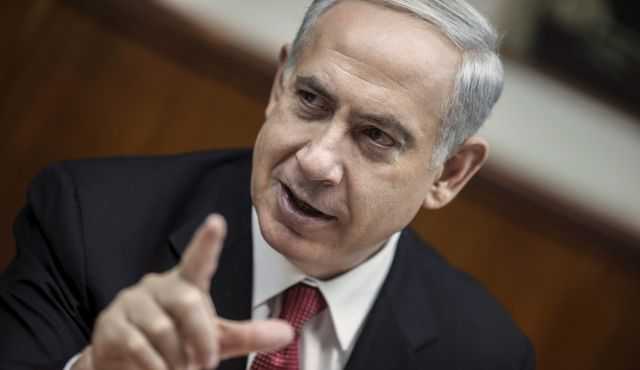Netanyahu reassures Greeks: Turkey reconciliation won’t come between us
Israel’s security and economic ties with Greece have strengthened over the past three years as relations with Turkey have floundered.

On Friday, shortly after his conversation with Turkish Prime Minister Recep Tayyip Erdogan that brought about the end of the crisis with Turkey, Prime Minister Benjamin Netanyahu spoke by phone with Greek Prime Minister Antonis Samaras, to reassure him that the reconciliation with Turkey will not come at the expense of ties with Greece.
The two also agreed to hold a summit meeting between the two governments in the coming months.
Over the past three years, as relations with Turkey floundered, Netanyahu worked to strengthen relations with its historic rival, Greece. Security cooperation between Israel and Greece was upgraded, and the two countries’ military forces held joint air force and naval exercises. The Israel Air Force conducted training exercises in Greek air space after years in which they had been held in Turkish air space.
Similarly, economic collaboration was tightened, particularly in the area of gas exploration in the eastern Mediterranean; diplomatic understandings were reached regarding flotillas to Gaza, and tourism to Greece was boosted. Hundreds of thousands of Israelis who in the past had vacationed annually in Turkey began to spend their holidays in Greece, funneling much-need funds into Greece’s collapsing economy.
Immediately after Passover, diplomats and jurists from Turkey and Israel are to begin talks on the compensation Israel is to pay to the families of the nine Turkish nationals killed during the Israeli Defense Forces raid on the Mavi Marmara, which was part of aflotilla trying to break Israel’s Gaza blockade in May 2010.
Erdogan suggested Sunday that relations with Israel would normalize only after the compensation is paid. But Israel did not commit to ending its Gaza blockade as part of the reconciliation with Turkey, and could clamp down even harder on the Palestinian enclave if security is threatened, Israeli officials said Sunday.
Erdogan on Friday said Israel had met his demands to apologize for the Mavi Marmara, pay compensation to those bereaved or hurt and lift the blockade by allowing in more consumer goods. That fell well short, however, of an end to the blockade – which Erdogan had routinely insisted on during the almost three-year-old rift as a condition for rapprochement.
Although Israel has relaxed curbs on overland civilian imports to impoverished Gaza, it signaled that the naval cordon, imposed during Operation Cast Lead in 2009, would remain.
“We have nothing against the Palestinian people. The maritime blockade derives from security considerations only, as terrorist groups can smuggle huge amounts of weaponry by sea,” senior defense official Amos Gilad told Army Radio. Another official told Reuters that Hamas was still trying to bring in arms into Gaza, and that this made “the blockade as necessary as always.”
“If there is quiet, the processes easing the lives of Gaza residents will continue. And if there is Katyusha fire, then these moves will be slowed and even stopped and, if necessary, even reversed,” National Security Adviser Yaakov Amidror told Army Radio. “We do not intend to give up on our right to respond to what happens in Gaza because of the agreement with the Turks.”
Amidror also insisted that U.S. President Barack Obama did not force Israel to apologize to Turkey.
“There was no pressure at all, not even a hint of pressure,” Amidror told Israel Radio. “The president asked us. He saw it also as an American interest that the U.S.’s two allies in the Middle East settle their differences.”
Amidror said Netanyahu made the apology, both “as a gesture to the president and also so that we can better cope with regional threats, especially the Syrian danger.” He added: “We have 500 years of friendship between the Jewish people and the Turkish people, and there is no reason why we shouldn’t go back to being good friends and partners in an effort to achieve more security and stability in the Middle East.”
U.S. Secretary of State John Kerry called the reconciliation “a very important development that will help advance the cause of peace and stability in the region.”
Netanyahu and Erdogan “deserve great credit for showing the leadership necessary to make this possible,” Kerry said.
President Shimon Peres told CNN in Turkish and the Turkish newspaper Hurriyet that “there are a thousand reasons why Israel and Turkey should be friends, and one can’t think of a single reason they should be enemies. The countries have a mutual history and Turkey was the first Muslim country to recognize the State of Israel.”
Chief of General Staff Benny Gantz, who had supported wrapping up the crisis with Turkey, said yesterday while touring the Binyamin Brigade base with Peres that the decision to apologize to Turkey was the right one. “We have to look after the interests of the State of Israel, particularly when we consider the Syrian arena,” said Gantz.




